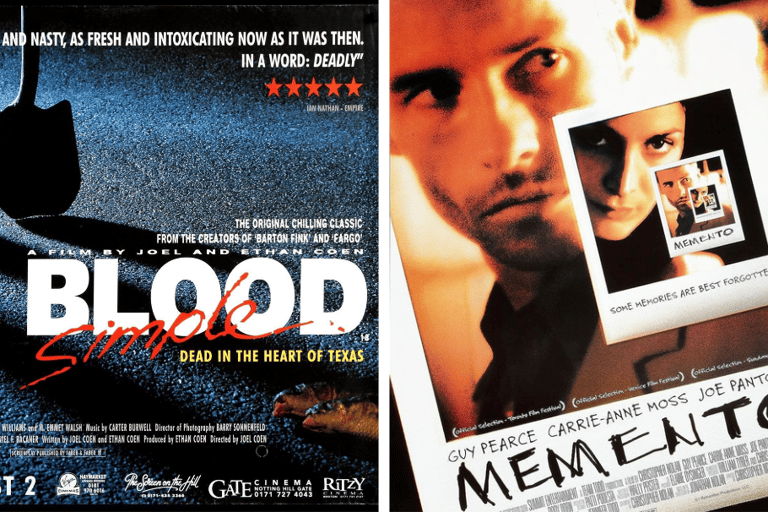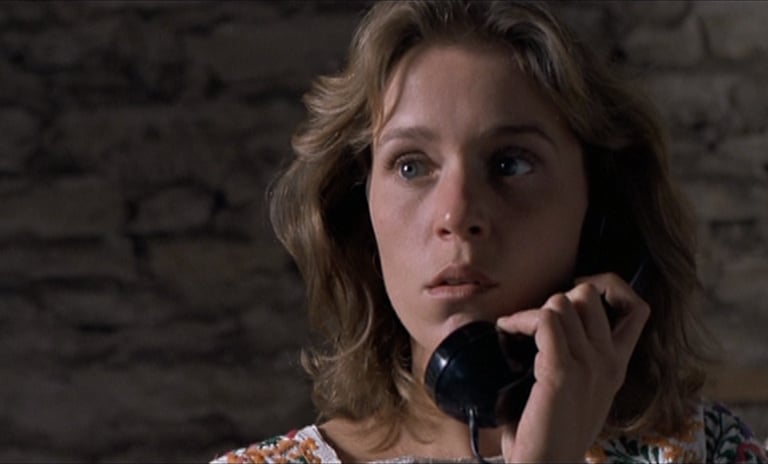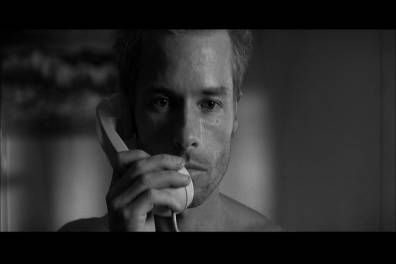Unreliable Narrator: Blood Simple & Memento Analysis
Explore how phone calls shape unreliable narrator in 'Blood Simple' and 'Memento.' Discover how these neo-noir films use sonic confusion and subjective flashbacks to highlight distrust and distorted realities
1/30/20252 min read
The American neo-noir crime film, Blood Simple (1985), focuses on Marty, a bar owner who discovers that his employee is having an affair with his wife by hiring a private detective. In contrast, as a neo-noir psychological film, Memento (2000) focuses on Leonard, an anterograde amnesia man who finds the truth about his wife's death. Besides the similarity in film genre, the use of telephone conversations in both films shapes the spectatorial knowledge and emphasizes the main characters' distrust and evading reality portrayed in each movie.


In Blood Simple, when Abby receives phone calls from Marty and Visser, the phone and ceiling fan's combination in both calls as a diegetic sound leads to Abby's misinterpretation of Marty calling her through sonic confusion. Mainly, Abby associates the ceiling fan sounds over the phone calls with Marty's office. Using this sound motif, the filmmakers inferred the unrestricted spectatorial, allowing the audience to observe Abby's subjective perspective and better understand the situation than Abby and Ray. However, Abby repeats her misidentification when she receives Visser's call by unconsciously thinking the ceiling fan sound indicates Marty's office, although Marty is already dead when she reaches this phone call. Moreover, when Abby answers these phone calls, Ray's witnesses strengthen the theme of mistaken identity and distrust toward Abby since Ray subjectively evades the reality that Abby may have a new lover. Hence, both Abby's behavioral and sonic confusion during her phone indirectly leads to the chain of mistaken identities due to her motif- misdirection.


Abby receives a phone call and the sound of the ceiling fan triggers a connection to Marty
In Memento, Leonard chiefly recalls Sammy Jankins and his wife confronting Sammy's "made-up" memory state by focusing on his wife's clarification on Sammy's condition and deciding on receiving an overdose of insulin injection from Sammy during Leonard's phone calls. The monologue speech and black and white sequence in Leonard's phone calls function as storytelling and visual flashback but also constructs both subjective and objective spectatorial knowledge by allowing the audiences and characters to understand Sammy's wife intentionally supports Sammy and emphasizes Leonard's similar condition of short-term memory loss. Notably, the monologue speech also accentuates Leonard's introspection without distracting the voice-over and unrestricted knowledge. Hence, this sonic aspect connects Sammy and his wife's story and Leonard's condition, suggesting Leonard's distorting reality, specifically his grieving of killing his wife by injecting overdose insulin, is similar to the behavior of Sammy's wife. Consequently, Leonard's phone calls evade him from the reality and responsibility for his wife's death.

